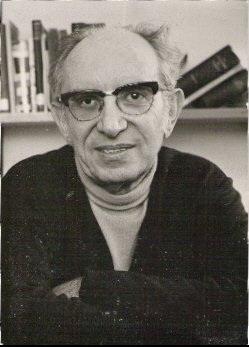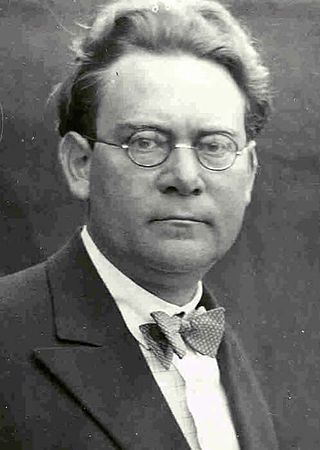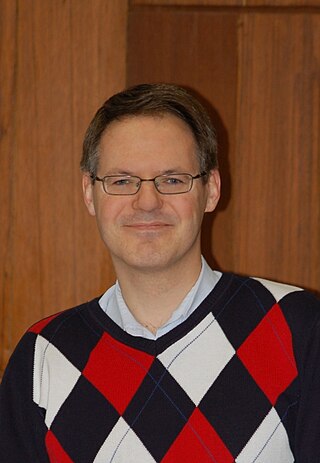Thomas Mormann (born 1951) is Professor of Philosophy at the University of the Basque Country in Donostia-San Sebastian, Spain. He obtained his PhD in Mathematics from the University of Dortmund (1978). He obtained his Habilitation from the University of Munich. He works in the philosophy of science, formal ontology, structuralism, Carnap studies, and neo-Kantianism.

Logical positivism, later called logical empiricism, and both of which together are also known as neopositivism, is a movement whose central thesis was the verification principle. This theory of knowledge asserted that only statements verifiable through direct observation or logical proof are meaningful in terms of conveying truth value, information or factual content. Starting in the late 1920s, groups of philosophers, scientists, and mathematicians formed the Berlin Circle and the Vienna Circle, which, in these two cities, would propound the ideas of logical positivism.

Rudolf Carnap was a German-language philosopher who was active in Europe before 1935 and in the United States thereafter. He was a major member of the Vienna Circle and an advocate of logical positivism. He is considered "one of the giants among twentieth-century philosophers."

In mathematics, an infinitesimal number is a quantity that is closer to zero than any standard real number, but that is not zero. The word infinitesimal comes from a 17th-century Modern Latin coinage infinitesimus, which originally referred to the "infinity-th" item in a sequence.

The Vienna Circle of Logical Empiricism was a group of elite philosophers and scientists drawn from the natural and social sciences, logic and mathematics who met regularly from 1924 to 1936 at the University of Vienna, chaired by Moritz Schlick. The Vienna Circle had a profound influence on 20th-century philosophy, especially philosophy of science and analytic philosophy.

Continental philosophy is a term used to describe some philosophers and philosophical traditions that do not fall under the umbrella of analytic philosophy. However, there is no academic consensus on the definition of continental philosophy. Prior to the twentieth century, the term "continental" was used broadly to refer to philosophy from continental Europe. A different use of the term originated among English-speaking philosophers in the second half of the 20th century, who used it to refer to a range of thinkers and traditions outside the analytic movement. Continental philosophy includes German idealism, phenomenology, existentialism, hermeneutics, structuralism, post-structuralism, deconstruction, French feminism, psychoanalytic theory, and the critical theory of the Frankfurt School as well as branches of Freudian, Hegelian and Western Marxist views.

Ernst Alfred Cassirer was a German philosopher. Trained within the Neo-Kantian Marburg School, he initially followed his mentor Hermann Cohen in attempting to supply an idealistic philosophy of science.

Yehoshua Bar-Hillel was an Israeli philosopher, mathematician, and linguist. He was a pioneer in the fields of machine translation and formal linguistics.

In late modern continental philosophy, neo-Kantianism was a revival of the 18th-century philosophy of Immanuel Kant. The Neo-Kantians sought to develop and clarify Kant's theories, particularly his concept of the "thing-in-itself" and his moral philosophy.

Wilhelm Windelband was a German philosopher of the Baden School.

Carl Gustav "Peter" Hempel was a German writer, philosopher, logician, and epistemologist. He was a major figure in logical empiricism, a 20th-century movement in the philosophy of science. He is especially well known for his articulation of the deductive-nomological model of scientific explanation, which was considered the "standard model" of scientific explanation during the 1950s and 1960s. He is also known for the raven paradox.

Hans Reichenbach was a leading philosopher of science, educator, and proponent of logical empiricism. He was influential in the areas of science, education, and of logical empiricism. He founded the Gesellschaft für empirische Philosophie in Berlin in 1928, also known as the “Berlin Circle”. Carl Gustav Hempel, Richard von Mises, David Hilbert and Kurt Grelling all became members of the Berlin Circle.

Kaarlo Jaakko Juhani Hintikka was a Finnish philosopher and logician.
Bruno Bauch was a German neo-Kantian philosopher.
Wolfgang Stegmüller was a German-Austrian philosopher who made important contributions in philosophy of science and analytic philosophy.
Michael Friedman is an American philosopher who serves as Professor of Philosophy and the Frederick P. Rehmus Family Professor of Humanities at Stanford University. Friedman is best known for his work in the philosophy of science, especially on scientific explanation and the philosophy of physics, and for his historical work on Immanuel Kant. Friedman has also done historical work on figures in continental philosophy such as Martin Heidegger and Ernst Cassirer. Friedman also serves as the co-director of the Program in History and Philosophy of Science and Technology at Stanford University.
In the philosophy of science, structuralism asserts that all aspects of reality are best understood in terms of empirical scientific constructs of entities and their relations, rather than in terms of concrete entities in themselves.

Joseph Warren Dauben is a Herbert H. Lehman Distinguished Professor of History at the Graduate Center of the City University of New York. He obtained his PhD from Harvard University.
Geoffrey Hellman is an American professor and philosopher. He is Professor of Philosophy at the University of Minnesota in Minneapolis, Minnesota. He obtained his B.A. (1965) and Ph.D. (1972) degrees in philosophy from Harvard University. He was elected to the American Academy of Arts and Sciences in 2007.

Hannes Leitgeb is an Austrian philosopher and mathematician. He is Professor of Philosophy at the Ludwig Maximilian University of Munich and has received a Humboldt Professorship in 2010. His areas of research include logic, epistemology, philosophy of mathematics, philosophy of language, cognitive science, philosophy of science, and history of philosophy.